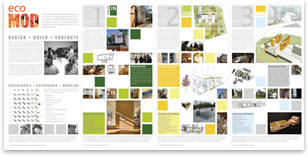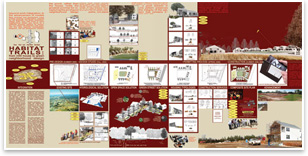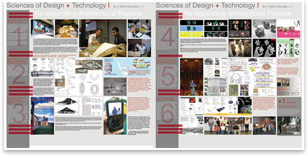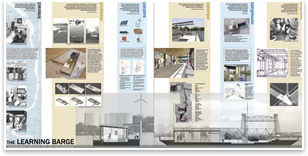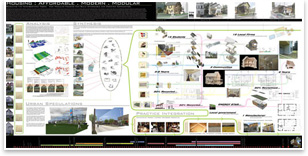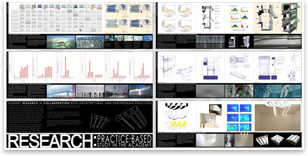
|
University of Virginia Wins $25,000 NCARB Grand Prize
Summary: The National Council of Architectural Registration Boards Prize jury on March 12 named the University of Virginia as the $25,000 grand prize winner of the 2007 NCARB Prize. The annual award, as envisioned by 2001 NCARB President Peter Steffian, FAIA, recognizes excellence and innovation when bringing together architecture education and practice. Architecture schools with NAAB-accredited degree programs were invited to submit established projects—completed or in progress by the end of the fall 2005 semester—that demonstrate creative initiatives that integrate the academy and the profession within a studio curriculum.
The 2007 NCARB Prize jury noted that the UVa project involved “an extraordinary array of collaborators and a real balance among all the participants.” The jury also noted: “The product itself demonstrates that having a great process, responsiveness to environmental concerns, and other good intentions, does not compromise the design or the end result.” Five more projects honored
|
||
Copyright 2007 The American Institute of Architects. All rights reserved. Home Page |
||
news headlines
practice
business
design
The 2007 NCARB Prize jury comprises the members of the Council’s Practice Education Committee and six deans (or department heads or chairs) of NAAB-accredited architectural programs chosen by NCARB’s regional leadership.
Committee members are:
• Frank M. Guillot, FAIA, Committee Chair (Vermont) NCARB President, 2005
• Arnold J. Aho, AIA (Vermont)
• Joseph L. Bynum, AIA (Alabama)
• T. Rexford Cecil, AIA (Kentucky)
• H. Carleton Godsey, FAIA (Kentucky) NCARB President, 2006
• Barbara A. Sestak, AIA, Jury Chair (Oregon)
• Michiel M. Bourdrez, AIA, Staff Liaison
• Demetrius Norman, Staff Support.
The six deans/directors/chairs, each of whom is based in an NCARB Region are:
• George Thrush, FAIA, Dean, School of Architecture, Northeastern University
• Clark Llewellyn, AIA, Director, School of Architecture, Montana State University
• Jeff Shannon, AIA, Dean, School of Architecture, University of Arkansas
• Frances Bronet, Dean, School of Architecture and Allied Arts, University of Oregon
• Joseph Bilello, FAIA, Dean, College of Architecture and Planning, Ball State University
• Garth Rockcastle, FAIA, Dean, School of Architecture, Planning, and Preservation, University of Maryland.
The NCARB Prize for Creative Integration of Practice and Education in the Academy was first initiated in the fall 2001 semester. The prize is inspired by the 1996 Carnegie Foundation report, Building Community: A New Future for Architectural Education and Practice, written by Lee D. Mitgang and the late Ernest L. Boyer.

